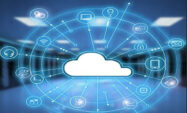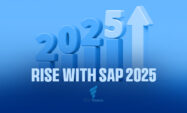SAP Hyperscalers
Filter By
Browse By
- SAP Analytics and AI
- SAP Application Development and Integration
- All SAP Application Development and Integration
- SAP ABAP
- SAP ABAP Development Tools
- SAP ABAP Test Cockpit
- SAP API Management
- SAP BAPI
- SAP Basis
- SAP BRF
- SAP Business Application Studio
- SAP CMS
- SAP Design Studio
- SAP Development Tools
- SAP DevOps
- SAP EAI
- SAP EDI
- SAP Extension Suite
- SAP Fiori
- SAP Fiori Elements
- SAP Integration Suite
- SAP Low Code Application Development
- SAP Low Code Automation
- SAP Netweaver
- SAP Release Management
- SAP UI5
- SAP Web Application Server
- SAP Web IDE
- SAP Business Process Management
- SAP Center of Excellence
- SAP CIO
- SAP Customer Experience
- SAP Data and Data Management
- All SAP Data and Data Management
- SAP BW
- SAP BW/4HANA
- SAP Crystal Reports
- SAP Data Archiving
- SAP Data Center
- SAP Data Governance
- SAP Data Integration
- SAP Data Migration
- SAP Data Quality
- SAP Data Services
- SAP Data Strategy
- SAP Data Visualization
- SAP Data Warehouse Cloud
- SAP DMS
- SAP Document Control
- SAP EIM
- SAP ETL
- SAP ETL Tools
- SAP HANA
- SAP HANA Administration
- SAP HANA Deployment Infrastructure
- SAP HANA Studio
- SAP Master Data
- SAP Master Data Governance
- SAP MDM
- SAP Enterprise Architect
- SAP Enterprise Asset Management
- SAP ERP
- SAP Finance
- All SAP Finance
- SAP Accounting
- SAP AR AP
- SAP Asset Accounting
- SAP Billing Systems
- SAP BPC
- SAP BRIM
- SAP Cash Management
- SAP Central Finance
- SAP Controlling
- SAP COPA
- SAP Cost Center Accounting
- SAP Currency Risk
- SAP e-invoicing
- SAP FICO
- SAP Finance Automation
- SAP Advanced Financial Closing
- SAP Financial Consolidation
- SAP Financial Planning
- SAP FX Risk
- SAP General Ledger
- SAP Global Tax Management
- SAP Hyperion
- SAP Order to Cash
- SAP Payment Processing
- SAP Profitability Analysis
- SAP Rebate Management
- SAP S/4HANA Finance
- SAP SWIFT Compliance
- SAP Treasury Management
- SAP Universal Journal
- SAP Governance Risk and Compliance
- SAP Human Capital Management
- SAP Intelligent Technologies
- SAP Platform and Technology
- All SAP Platform and Technology
- SAP Business Technology Platform
- SAP Cloud
- SAP Cloud Connector
- SAP Cloud Integration Platform
- SAP Cloud Migration
- SAP Cloud Platform
- SAP Cloud Providers
- SAP Cloud Strategy
- SAP Digital Signature
- SAP Container Platform
- SAP HANA Enterprise Cloud
- SAP Digital Asset Management
- SAP Smart Forms
- SAP HEC
- SAP Digital Integration Hub
- SAP Hyperscalers
- SAP Infrastructure
- SAP Messaging
- SAP Quality and Testing
- SAP Security
- SAP Spend Management
- SAP Supply Chain Management
- All SAP Supply Chain Management
- SAP APO
- SAP Asset Management
- SAP Business Network
- SAP Digital Manufacturing Cloud
- SAP Digital Twin
- SAP EWM
- SAP IBP
- SAP Inventory Management
- SAP Label Printing
- SAP Logistics
- SAP Manufacturing
- SAP Manufacturing Automation
- SAP MES
- SAP MII
- SAP MM
- SAP MRO
- SAP MRP
- SAP Order Management
- SAP Plant Maintenance
- SAP PLM
- SAP Production Planning
- SAP S&OP
- SAP SD
- SAP SPM
- SAP Supply Chain Planning
- SAP Track and Trace
- SAP Transportation Management
- SAP System Administration
SAP Hyperscalers: An Overview and Key Considerations
What Are SAP Hyperscalers?
Hyperscale computing is the ability of an architecture to scale as needed to support increased demand. But what most people think about when discussing the term “hyperscaler” is the scale of the computing environment. Typically distributed, hyperscale environments can include thousands or tens of thousands of servers. SAP Hyperscalers refers to the public cloud providers that SAP uses as hosting partners for their cloud solutions and services. The primary vendors that fit the criteria of SAP Hyperscalers are:
These three organizations are the market leaders in infrastructure-as-a-service (IaaS) and platform-as-a-service (PaaS) computing today, and all are close partners of SAP. While not as significant in the global cloud services market, Alibaba Cloud is very prominent in the APJ region and also partners closely with SAP.
Key Considerations for SAPinsiders
SAP Hyperscalers: An Overview and Key Considerations
What Are SAP Hyperscalers?
Hyperscale computing is the ability of an architecture to scale as needed to support increased demand. But what most people think about when discussing the term “hyperscaler” is the scale of the computing environment. Typically distributed, hyperscale environments can include thousands or tens of thousands of servers. SAP Hyperscalers refers to the public cloud providers that SAP uses as hosting partners for their cloud solutions and services. The primary vendors that fit the criteria of SAP Hyperscalers are:
These three organizations are the market leaders in infrastructure-as-a-service (IaaS) and platform-as-a-service (PaaS) computing today, and all are close partners of SAP. While not as significant in the global cloud services market, Alibaba Cloud is very prominent in the APJ region and also partners closely with SAP.
Key Considerations for SAPinsiders
- SAP Hyperscalers offer a scalable environment that can help facilitate change. When SAPinsider spoke to MSC Industrial about why they decided to move forward with a hyperscaler, they explained that it allowed them to consolidate their IT footprint and refocus their IT resources on strategic priorities. Not only did they receive support from SAP for their deployments, they also received just as much support from their hyperscaler partner. This meant that they were able to consider how they could do more with their existing technology, a change that they did not previously believe was possible.
- Cloud computing is likely to be a hybrid future for SAP customers. SAPinsider research in 2021 revealed that, of those organizations running SAP workloads in the public cloud, most were using more than one public cloud provider. And when RISE with SAP was launched, one of the factors that SAP emphasized was the choice available for organizations in their hosting partner. Markus Noga, SUSE’s Vice President, Solutions Technology, agrees that organizations are becoming more discerning about where they deploy solutions. Hybrid cloud environments, whether they involve some on-premise and some cloud-based deployments, or simply leverage multiple SAP Hyperscalers, are the way forward when working with hyperscale computing.
- RISE with SAP provides customers with the choice of their hosting partner, though the contract is managed by SAP. When organizations purchase SAP’s new RISE with SAP offering, they can choose their hosting partner. Many are choosing to go with the SAP Hyperscalers mentioned above, even though they will not be able to leverage their existing contracts with these cloud providers. This is because RISE with SAP is a single contract with SAP, and SAP manages all the other contracts involved. This article provides insight on RISE with SAP contracts, and four other things that you should know about RISE with SAP.
130 results
-

Microsoft, SAP, and Databricks Expand Partnership with Launch of Business Data Cloud on Azure
Reading time: 2 mins
SAP, Microsoft, and Databricks are set to launch SAP Business Data Cloud and SAP Databricks on Microsoft Azure in Q3 2025, aimed at helping enterprises unify their data environments and leverage advanced analytics and AI capabilities through a zero-copy data sharing connector, enhancing data accessibility and governance.
-

SAP and AWS Launch AI Co-Innovation Program to Accelerate Enterprise Transformation
Reading time: 3 mins
At SAP Sapphire 2025, SAP and AWS launched the AI Co-Innovation Program to enable partners and customers to develop generative AI applications for ERP workloads by combining AWS’s AI services with SAP’s enterprise software.
-

Fortinet Expands Workspace Security to Safeguard SAP and Hybrid Enterprises
Reading time: 3 mins
Fortinet has significantly expanded its cybersecurity platform with the AI-driven FortiMail Workspace Security Suite, enhancing protection for enterprise email and collaboration tools, particularly for SAP customers.
-
-

Google’s A2A Protocol Could Reshape SAP’s AI Strategy
Reading time: 3 mins
Google has launched the A2A protocol, an open standard enabling AI agents to collaborate seamlessly across platforms and ecosystems, including SAP environments, thereby enhancing interoperability in enterprise AI.
-

Why AI Is Driving SAP Customers to Hybrid Cloud, But On Their Own Terms
Reading time: 2 mins
SAP customers are increasingly turning to the SAP S/4HANA Cloud Private Edition – Customer Data Center model to modernize their ERP systems, balancing the benefits of cloud innovation with the need for on-premises control, compliance, and cost efficiency.
-

Accelerating SAP S/4HANA Migrations with Terraform on AWS
Reading time: 3 mins
As SAP customers accelerate their migration to SAP S/4HANA by the 2027 support deadline, many are utilizing Infrastructure as Code (IaC) solutions like AWS’s open-source Terraform modules to simplify and automate their deployment processes, leading to improved operational efficiency and standardization across diverse SAP landscapes.
-

NetApp Becomes NFL’s Official Intelligent Data Infrastructure Provider
Reading time: 3 mins
NetApp’s multi-year partnership with the NFL aims to enhance digital transformation by providing intelligent data infrastructure, which reflects significant implications for SAP customers needing real-time analytics and hybrid cloud solutions, while highlighting the industry’s shift towards advanced data architectures.
-
-

SAP Partners with Dell to Bring Cloud Agility to Your Data Center
Reading time: 3 mins
SAP, in collaboration with Dell Technologies and Intel, has introduced a deployment option for RISE with SAP that merges cloud flexibility with data control, enabling companies to modernize their SAP environments while ensuring compliance, security, and cost-effectiveness.
-

RISE with SAP 2025: Evolving Beyond ERP Modernization
Reading time: 4 mins
At Sapphire 2025, SAP announced the evolution of RISE with SAP into a comprehensive platform that not only modernizes ERP systems but also enables business transformation through integrated AI, sustainability measures, and industry-specific solutions, aiming to enhance agility and resilience in enterprises.
-

There is More to Cloud than “the Cloud”
Reading time: 2 mins
SAP modernization lacks a one-size-fits-all solution, requiring organizations to carefully weigh compliance, security, and performance needs when choosing between hyperscaler-cloud and on-premise options, with Dell's PowerEdge servers providing a robust infrastructure for optimizing SAP HANA workloads through enhanced performance, scalability, resilience, security, sustainability, and cost-effectiveness. Membership Required You must be a member to access this…
Become a Member
Unlimited access to thousands of resources for SAP-specific expertise that can only be found here.
Become a Partner
Access exclusive SAP insights, expert marketing strategies, and high-value services including research reports, webinars, and buyers' guides, all designed to boost your campaign ROI by up to 50% within the SAP ecosystem.
Upcoming Events
Related Vendors
Your request has been successfully sent


